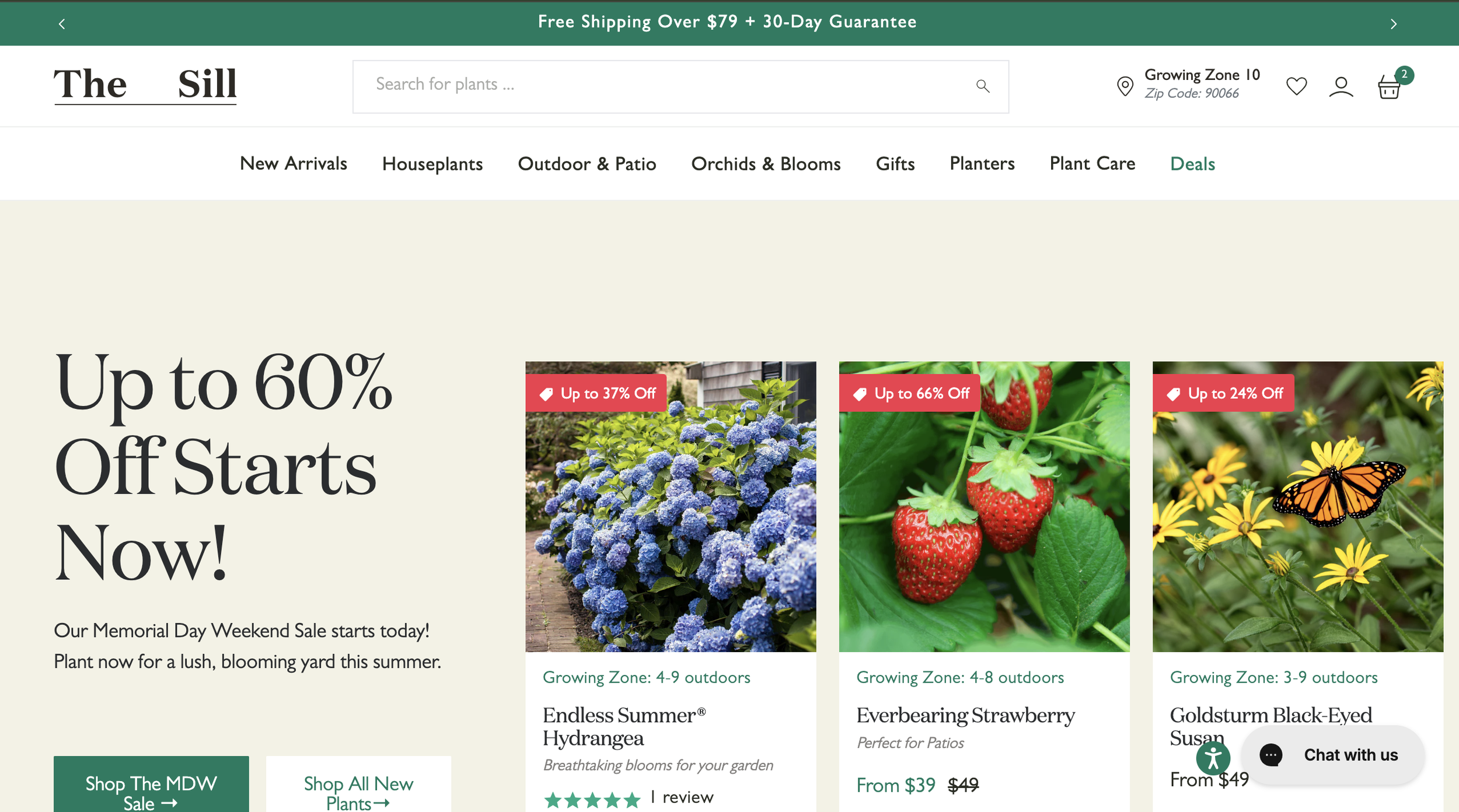The Sill Managed to Generate $100M in Lifetime Sales by Solving One of E-Commerce’s Most Complex Supply Chains
(This is an audio transcription from my voice memos)
I came across a company the other day called The Sill and I was fascinated. First of all, they're a big company. They've done over $100 million in lifetime sales as a plant shop that is now purely DTC. So how did they do this?
When you think about plants, they have one of the most complex supply chains out there. First, the number of SKUs. Other companies might have limited SKU counts—many are below 10, some below 100—but with plants, you need a massive catalog if you want to offer variety.
Second, not every plant can be shipped everywhere. There are state regulations. One plant I looked at couldn’t be shipped to Oregon or Arizona. That makes SKU routing logic very interesting.
Then there are storage and transit conditions. Some plants need air. Some can’t be stored in a dark box. Some need cooler trucks. Each plant may have specific requirements. Obviously, some are more resilient, but accounting for these variables is incredibly complex.
It's incredible they pulled this off, especially given that the founder, when she started in 2012, had zero logistics background. She went to a supply chain trade show and began connecting the dots—especially between growers.
This isn't like manufacturing in China where there’s one source. Growers are spread across the country. Florida has tropical plants. Other regions grow varieties suited to their climates.
At that conference, she started piecing it together. That was 2012. Now it’s 2025—13 years later. Over time, she built a moat. You can’t launch a plant brand overnight. It takes years to build grower relationships and figure out optimal shipping.
Their order routing and SKU management logic are clear advantages.
To simplify in 2024, they shut down 10 retail stores that had made up 25% of revenue. Likely for two reasons:
1. To refocus the supply chain on what worked—DTC.
2. To meet consumer expectations of fast, direct delivery.
With platforms like Instagram, customers want plants now. If they can ship directly and skip the store, they’ll buy online. They can see dimensions, maybe use AR to preview it in their room.
Online shopping has taken off, and this brand has capitalized on it.
Just wanted to share this—it’s wild how complex their supply chain is compared to so many other categories.


